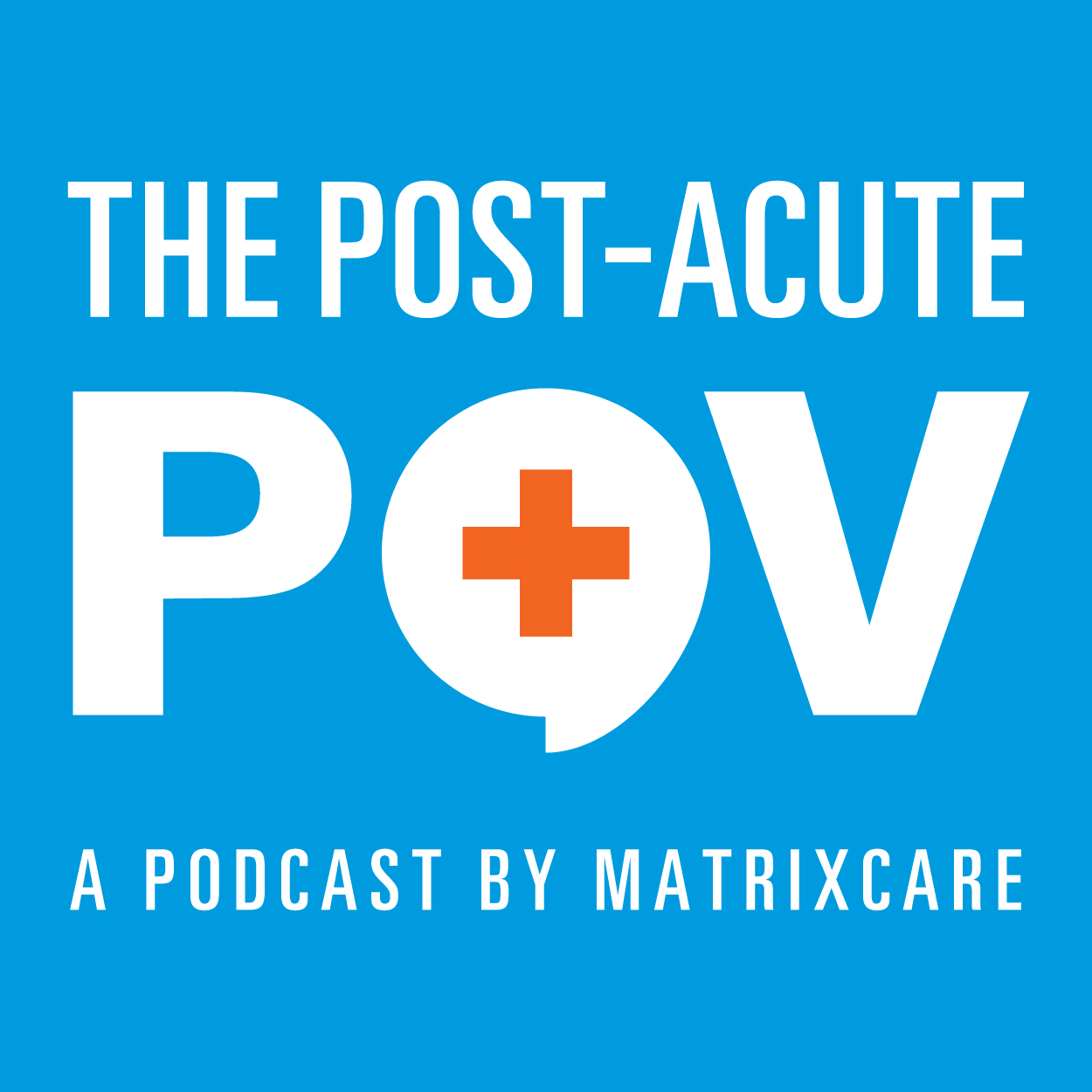In the latest episode of the Post-Acute POV podcast, our host, Andrew Donlan, Senior Editor at Home Health Care News, presents a panel discussion featuring Chris Pugliese, Director of Product Management, MatrixCare, as the moderator, and Paul Wilder, Executive Director, Commonwell Health Alliance, Angela Richards, Director of Health Informatics, Andwell Health Partners, and Nick Knowlton, VP of Business Development, ResMed, as the special guests.
Their conversation delves into the critical role of interoperability in post-acute care, particularly with the implementation of the Trusted Exchange Framework and Common Agreement (TEFCA). The group covers key topics such as challenges in data access, streamlining data for home health and hospice, and the importance of engagement in interoperability. Listen in as the panelists stress the value of seamless data exchange and collaboration across the healthcare system to enhance patient care.
Topics discussed during today’s episode:
- [00:31 – 01:08]: Andrew Donlan, introduces our panelists: Chris Pugliese, Paul Wilder, Angela Richards, and Nick Knowlton, and our topic for today’s panel: improving health data exchange and interoperability in post-acute care.
- [01:08 – 05:40]: Chris Pugliese kicks off the conversation by highlighting key challenges like inefficient care transitions, outdated processes, and limited tech adoption in post-acute care. He also highlights MatrixCare’s focus on balancing innovation with legacy systems, educating stakeholders, and integrating digital solutions to improve data access and care quality.
- [05:40 – 09:18]: Chris discusses the importance of interoperability for post-acute providers in the value-based care landscape, focusing on the role of the Trusted Exchange Framework and Common Agreement (TEFCA) and certified entities, called Qualified Health Information Networks (QHINs).
- [09:18 – 12:34]: Paul Wilder discusses the evolution and impact of interoperability in healthcare, highlighting Commonwell Health Alliance's role since its founding in 2013. He emphasizes the importance of TEFCA as a government-supported "network of networks" that establishes a unified framework for data exchange.
- [12:34 – 16:22]: Nick Knowlton and Paul Wilder highlight TEFCA’s role in building trust and clarifying use of health data especially as technologies like AI evolve, ensuring health data exchange remains secure and collaborative under a unified national framework.
- [16:22 – 22:06]: Angela discusses her organization’s use of tools like CommonWell, HealthInfoNet, and MatrixCare to manage referrals and access meaningful patient data, emphasizing the need for accurate, actionable information for frontline care teams.
- [22:06 – 28:24]: Paul explains that while interoperability has improved, post-acute workflows often lag due to outdated processes and limitations in real-time data sharing. Paul recommends prioritizing local data connections, focusing on recent and relevant information, and building workflows that align with available data.
- [28:24 – 35:03]: Paul highlights how COVID-19 accelerated the use of digital health records as manual processes like faxing were disrupted. Chris promotes the PACIO Project, which aims to create standardized data formats for post-acute providers.
- [35:03 – 42:18]: Chris, Paul, Angela, and Nick wrap up by highlighting key points: Angela emphasizes interoperability's role in improving efficiency and safety in post-acute care; Nick urges providers to engage now with referral sources and tech partners; and Paul stresses the importance of data sharing and regularly assessing data exchange quality.
Resources
Disclaimer
The content in this presentation or materials is for informational purposes only and is provided “as-is.” Information and views expressed herein, may change without notice. We encourage you to seek as appropriate, regulatory and legal advice on any of the matters covered in this presentation or materials.
©2025 by MatrixCare
